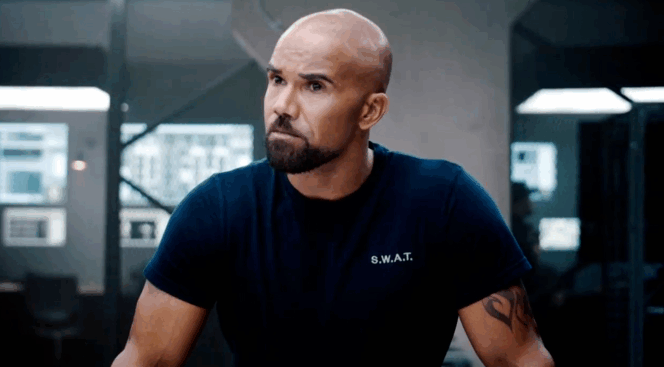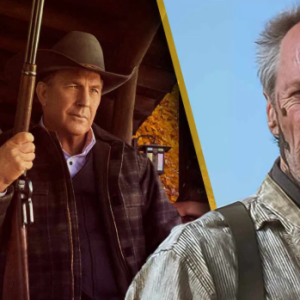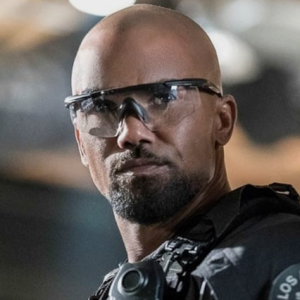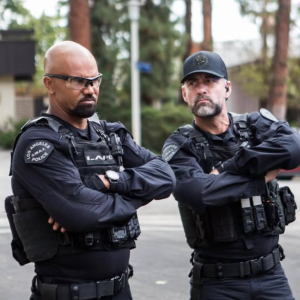For eight seasons, CBS’s S.W.A.T. captivated audiences with its high-octane action, compelling character arcs, and timely exploration of complex social issues. Centered on Sergeant Daniel “Hondo” Harrelson, portrayed by Shemar Moore, the series followed an elite Los Angeles Police Department Special Weapons and Tactics unit. Beyond the thrilling tactical operations, S.W.A.T. distinguished itself through its profound emphasis on the bonds of its team. Hondo wasn’t just a leader; he was the anchor of a family, guiding his diverse squad through perilous situations while grappling with the moral complexities of modern policing. Characters like Deacon Kay (Jay Harrington), the seasoned veteran and moral compass, and Victor Tan (David Lim), the resourceful and quick-witted officer, were integral to the show’s fabric, offering different perspectives and contributing significantly to the ensemble’s dynamic. Their personal struggles, triumphs, and unwavering loyalty to each other formed the emotional core that resonated deeply with millions of viewers, transforming a standard police procedural into a narrative about community, loyalty, and the pursuit of justice both on the streets and within the precinct. The series built its success on the premise that no single officer, no matter how skilled, could achieve their mission without the unwavering support and unique contributions of their entire squad.
This deeply ingrained sense of camaraderie and shared history made the recent announcement from Sony Pictures Television particularly jarring. Just two days after S.W.A.T. aired its emotional series finale, Sony quickly greenlit a 10-episode spinoff titled S.W.A.T. Exiles. The startling news was that this new venture would feature only Shemar Moore reprising his role as Hondo, with no involvement or prior notice given to most of the original cast, crew, or even executives at the network that had housed the successful series for so long. The abruptness and exclusivity of the announcement ignited a swift and public backlash from key members of the S.W.A.T. family.
Among the first to voice their dismay was David Lim, who portrayed Victor Tan. Taking to social media, Lim expressed that the spinoff rollout “stung,” conveying a profound sense of abandonment for the very team that had collectively built the show’s identity. He wrote, “It was tough to see it announced just two days after our finale—with no mention of the cast who helped build S.W.A.T. from day one.” Lim underscored the immense emotional investment and personal connections forged over eight seasons, lamenting that there were still countless stories the ensemble could have told together. His sentiments were echoed by Jay Harrington, the actor behind the beloved character Deacon Kay, a figure whose steady presence and family-first ethos made him a fan favorite. Harrington described the lack of communication from Sony as a profound disappointment, admitting he was entirely blindsided, learning of the project through industry trade publications rather than from the studio directly. While acknowledging that in the entertainment business, nothing is truly “owed,” he simply wished for the courtesy of being informed, a common expectation among actors who dedicate years of their lives to a franchise.

In response to the growing wave of criticism and concern, Shemar Moore, the central figure of both the original series and the upcoming spinoff, released an emotional video statement on social media. Moore likened himself to the “Tom Brady of S.W.A.T.,” positioning himself as the indispensable anchor of the franchise, even in the absence of his original team. Despite this bold assertion, he immediately followed it with heartfelt acknowledgements for his former co-stars, stating, “I had a squad, a family, a team… and I love you, respect you, appreciate you,” going on to name many of them individually. He was unapologetic about the future direction of the franchise, asserting, “I’m not gonna apologize for nothing.” Moore defended the new venture as a necessary evolution, emphasizing that change often signifies growth. Concurrently, he expressed deep pride in the collaborative efforts that shaped the original series, including the dedication of its cast, crew, and writers. Beyond the creative arguments, Moore also highlighted the practical implications of the spinoff, noting that it provides crucial continuity for nearly 200 crew members and ensures that production remains in Los Angeles, a gesture of loyalty to the behind-the-scenes professionals whose livelihoods depend on consistent work.
Sony’s decision to pursue a solo Hondo spinoff was rooted in strategic business imperatives. The studio fast-tracked the project from pitch to approval in an incredibly short span, primarily to retain Moore under contract, preserve existing soundstage deals, and secure commitments from international buyers. In an era of shifting network economics and the burgeoning dominance of streaming platforms, Sony opted for a leaner, 10-episode structure, which is more cost-effective and aligns perfectly with the current streaming model. However, this streamlined approach inevitably meant fewer roles and generated significant friction among the legacy contributors who had been instrumental in S.W.A.T.’s long-standing success.
This unfolding controversy serves as a stark illustration of a recurring trend in the television industry: the creation of spinoffs that move forward with minimal cast overlap, often prioritizing the continuity of a franchise’s intellectual property over the established legacy of its ensemble. While a significant portion of the fanbase rallied in support of Lim’s and Harrington’s candid sentiments, others adopted a more pragmatic view, acknowledging the harsh realities of the industry and the need for shows to adapt or perish. Executives have subtly hinted at the possibility of cameo returns from original cast members in S.W.A.T. Exiles, suggesting a potential path towards reconciliation and a nod to the show’s origins, though nothing concrete has been confirmed.

Ultimately, Shemar Moore’s undeniable passion and his executive involvement provide S.W.A.T. Exiles with significant traction. However, the immediate and widespread backlash underscores a fundamental truth about storytelling in long-running television: its heart often resides in the community forged by its characters. Fans are left pondering a critical question: Can Hondo truly lead a new era of S.W.A.T. without the deep bonds and shared history that defined the original series? The tension between preserving a beloved legacy and embracing commercial evolution defines this pivotal moment for the franchise. Moore may indeed be the “quarterback” of S.W.A.T., but it was undoubtedly the collective strength, diverse talents, and unwavering commitment of the entire team that built the game, season after captivating season.





